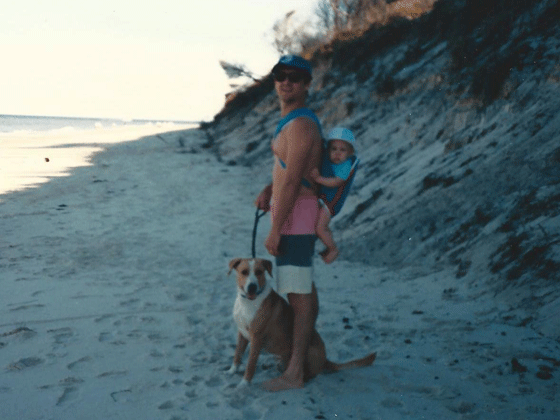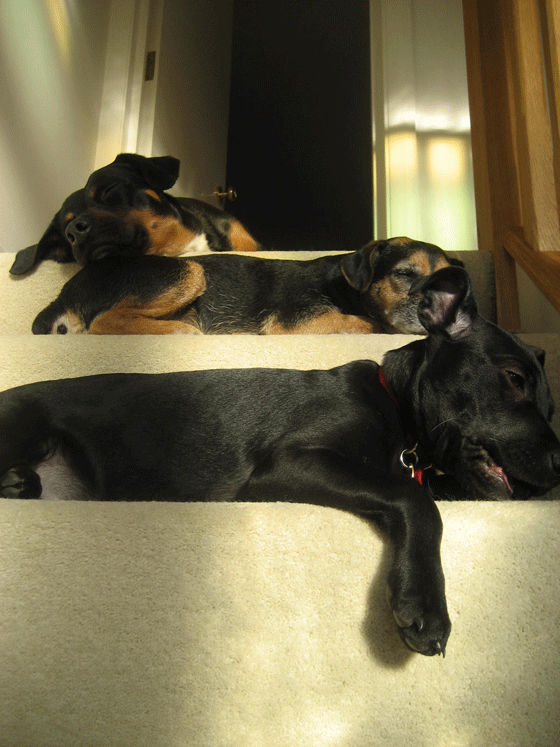- 5 reasons your dog is waking up early
- 1.Does your dog have a medical problem?
- 2. Is your dog getting enough daytime activity?
- 3. Is your dog really awake?
- 4. Is early morning light waking your dog?
- 5. Is your dog comfortable in his bed?
- ....and importantly
- When you shouldn't expect your dog to sleep through
Are you woken up early by your little canine alarm clock and struggling to stay awake during the day? You’re not alone.
The good news is that it’s actually not as difficult as it seems to encourage your dogs to have a lie-in.
The key to getting a dog to sleep later is to identify why your dog is waking, which we’ll go through here, as this will determine what measures you need to take to help you and your dog rest more thoroughly, and more effectively.
Rule out medical problems
One of the first things to check is whether your dog is waking because of an underlying medical condition. Some common canine medical problems don’t always present with obvious symptoms that are easy to recognise. Instead, they disguise themselves, often very subtly, in symptoms such as early waking.
When researching the statistics we found urinary tract infections affect roughly 14% of the dog population* and is a very common reason for dogs waking early in the morning.
A urinary tract infection in dogs is very similar to the condition in humans, and causes suprapubic pressure. This pressure around the pelvis presses on the bladder and makes your dog feel like he needs to urinate, even if he has an empty bladder. It can make your dog very uncomfortable and he may start waking early thinking he needs to urinate. If you’ve ever suffered from a urinary tract infection yourself, you’ll know just how uncomfortable this is.
Fortunately, these infections in dogs are very easy to treat, although they may recur sporadically. For very severe cases, your vet might prescribe antibiotics. The condition can usually be treated by making sure your dog has an increased fluid intake. Plenty of water and giving natural treatments such as cranberry which encourages the kidneys to flush out toxins.
Rule out underlying medical conditions as the first step towards discovering why your dog wakes so early in the morning.
Increase exercise & daytime activity
The statistics are startling. Approximately 1 in 5 dog owners don’t exercise their dogs enough*, which is resulting in a significant rise in canine obesity.
Around the world, obesity levels in dogs are hovering between 20% and 40%*. While this can have detrimental effects on your dog’s overall health and wellbeing, it can also be associated with another problem – your dog’s early waking.
If your dog isn’t getting enough exercise, chances are he’s simply not tiring himself out enough to enable him to sleep much past dawn. Depending on the size and age of your dog, he most likely requires between 30 and 60 minutes of exercise each and every day to ensure he’s tired by the end of the day.
Dogs often take their cues from light so if you’re not tiring your dog out you can expect him to wake when it becomes light outside.
Sadly, many dog owners don’t realize that they’re not exercising their pups enough. If you’re wondering how to get your dog to sleep later in the morning, it’s worth thinking about your walking schedule and routine, and seeing if it needs tweeking.
Find ways to get exercise with your dog as part of the family to get a dog to sleep later.
Is your dog really awake?
If you tend to get up out of bed the first time your ‘canine alarm clock’ sounds, here’s something that may surprise you. Although he’s barking, your dog may not actually be awake. You may not have to wonder how to get your dog to sleep later in the morning, he might simply do it all by himself if he’s given the chance to do so.
Just like humans, dogs have sleep/wake cycles during the night, which means that they drift in and out of consciousness. They also go through many different stages of sleep within the sleep/wake cycle itself.
Studies on canine sleep have discovered that the average dog spends roughly 12% of the night in rapid eye movement (REM) sleep, which is when he dreams. Around 23% of the night is spent in slow-wave sleep (also known as deep sleep), and 21% of the night is spent in a drowsy state of wakefulness.
This is when your dog is still within the sleep/wake cycle but is aware of what’s going on around him.
The majority of the night, roughly 44%, is spent in what’s known as ‘alert wakefulness’.
During alert wakefulness, some dogs may bark. This can be misinterpreted as being fully awake, especially if the timing coincides with the early morning. Barking doesn’t necessarily mean your dog is ready to get out of bed. It could just be a part of their sleep/wake cycle.
Although it’s difficult to ignore a barking dog, try leaving him for just a few minutes and see if he shows signs of settling and going back to sleep. If you’re lucky, you may even be able to drift back off to sleep too!
Sleeping arrangements
Dogs often begin to stir as the sun starts to rise because they take their cues from the light. It’s a signal to them that it’s time to get up. If you’re not tiring your dog out with exercise you can generally expect him to wake whenever it becomes light outside.
Position your dog’s bed in a place that doesn’t have the morning light streaming through to disturb him. Close the curtains or shades over the windows.
Make sure your dog has a comfortable, warm place of his own to sleep. Dogs like their own secure ‘little nook’ or special place that they can feel cozy and secure.
Toileting routine
Take your dog outside to potty last thing at night so he’s comfortable to settle down for the night. Your dog will quickly learn his routine.
When shouldn’t you expect your dog to sleep in?
- If your dog is aging he might need to be taken outside for a toilet break during the night or early hours of the morning. Just as we get older and have to deal with the unwelcome side effect of having to get up during the night, the same can happen as our dogs get older.
- When you have a puppy. You’re house-training him to tell you when he needs to go to the toilet. So be patient; your puppy is doing the right thing. Praise him for doing what you want him to do. He’s little and hasn’t yet developed the control of an older dog. However, this time should fuss-free. No playing, no eye-contact, no distractions, just back to his bed when he’s comfortable. You don’t want him to learn that he can wake you up this way for play, cuddles or to start his day.
The key to getting your dog to sleep later
Identification really is key so you can start enjoying a bit more shut-eye. The reason your dog is disturbed from sleep will ultimately determine the solution to your dog’s early waking.
Further reading resources for those of you like to delve deeper
You might also like
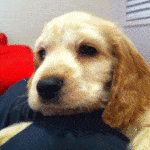 Why Choose Us for Pet Bedding?
Why Choose Us for Pet Bedding? What Food is Best for my Dog?
What Food is Best for my Dog?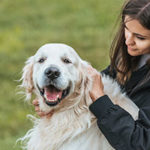 Pooper Scooper to Attach to a Leash
Pooper Scooper to Attach to a Leash Washable Dog Blankets
Washable Dog Blankets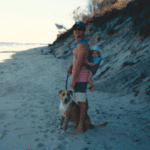 How to Safely Exercise an Arthritic Dog
How to Safely Exercise an Arthritic Dog Mastering Puppy Sleep : Tips for a Restful Night
Mastering Puppy Sleep : Tips for a Restful Night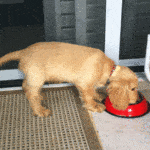 Canned Dog Food or Kibble – Which is Best?
Canned Dog Food or Kibble – Which is Best? Most Dangerous Foods for Dogs and 5 of the Best
Most Dangerous Foods for Dogs and 5 of the Best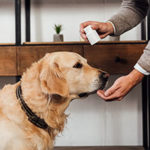 Pain Relief Options For A Dog With Arthritis
Pain Relief Options For A Dog With Arthritis How to Help Your Puppy Settle Quickly
How to Help Your Puppy Settle Quickly


